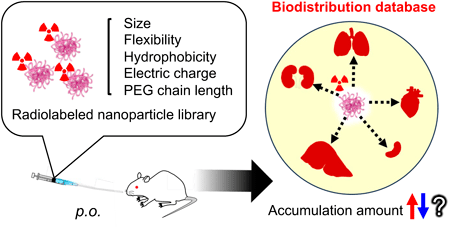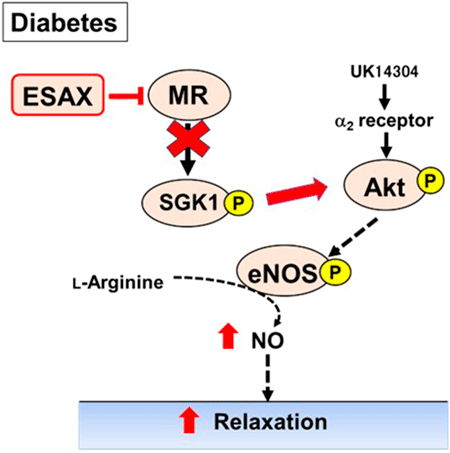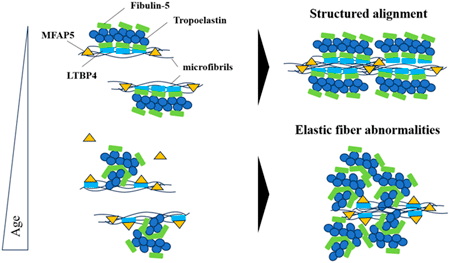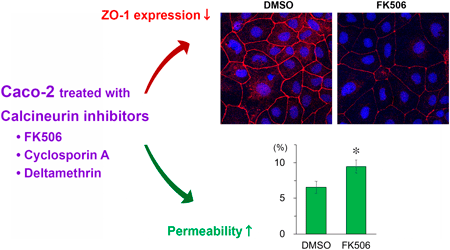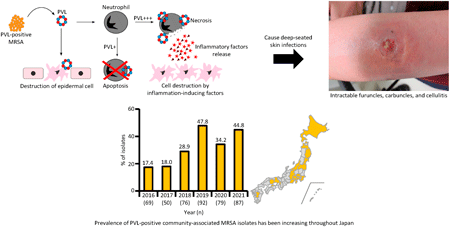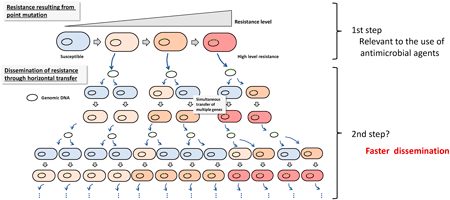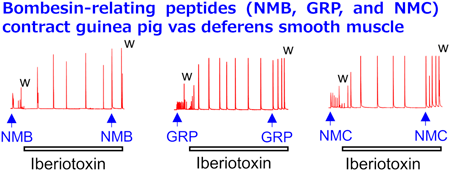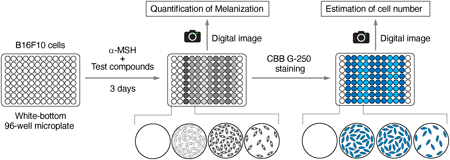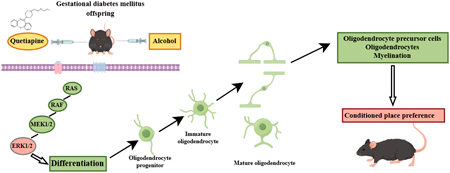-
Volume 48 (2025) Issue 6 Pages 782-790Integrated Clinical Trial Management System: Establishment and Efficiency Assessment Read moreEditor's pick
The article discusses the Clinical Trial Management System (CTMS), which was established in 2014 through a collaboration between healthcare researchers and software specialists. Designed for three major teaching hospitals in Taiwan, the CTMS integrates hospital resources to streamline clinical trial operations. The core features include real-time tracking of trial progress and the integration of budget, contract, subject, and data management within hospital systems. With over 900 supported trials and more than 53,000 participants, the system has significantly improved data security, operational efficiency, and cost control. Continued efforts to integrate electronic health records are essential for future scalability and trial quality.
-
Volume 48 (2025) Issue 6 Pages 825-829Surface Texture Influences Environmental Preference and Locomotion in Behaving Rats Read moreEditor's pick
Although tactile sensation is vital for the survival of rodents, their preference for specific textures is not well understood. To examine this, the authors developed a novel open-field paradigm with equally divided rough and smooth surfaces, using a water-based motivator to encourage unbiased exploration. They demonstrated that rats prefer the rough texture, as evidenced by longer interaction times. This preference persisted even in complete darkness, confirming that the choice is driven by tactile rather than visual cues. Altogether, this work highlights how tactile inputs guide behavior and offers key insights for creating enriched environments that align with animals’ innate preferences.
-
Editor's pick
Mechanical hyperalgesia is commonly evaluated using von Frey filaments (vFFs) in the rodent hind paw plantar. However, it is difficult to select the plantar location to stimulate with the vFFs. This study showed the effective location of the plantar surface for the evaluation of mechanical hyperalgesia using vFFs in mice treated with paclitaxel, which elicits peripheral neuropathy in a stocking-glove distribution in human patients. The authors’ results suggest that the selection of the location on the plantar surface to be stimulated is important for pain evaluation using vFFs.
-
Volume 48 (2025) Issue 6 Pages 919-927Ameliorative Effects of Sweeteners on a Mouse Jet Lag Model Read moreEditor's pick
[Highlighted Paper selected by Editor-in-Chief]
The authors investigated the effects of sweet-tasting substances on the re-entrainment of circadian rhythms in a mouse model of jet lag. Using behavioral activity monitoring, they demonstrated that intake of both sucrose and the artificial sweetener sucralose facilitated adaptation to shifted light-dark cycles. These findings suggest that sweet taste may aid in recovery from circadian misalignment and serve as a basis for non-pharmacological strategies to manage jet lag. Additionally, the results may open new avenues for research on chrononutrition and lifestyle-based circadian health interventions. -
Volume 48 (2025) Issue 6 Pages 941-950Development of a Gryllus bimaculatus-Based Assay System for Evaluating Chemically Modified siRNAs Read moreEditor's pick
In the development of siRNA therapeutics, chemical modifications are crucial for enhancing their potency and biochemical stability. However, optimizing the design of chemically modified siRNAs remains challenging due to differences in assay volume and delivery methods between in vitro and in vivo screening. To address this, Inoue et al. have established a novel evaluation platform using the model insect, Gryllus bimaculatus (Gb). In Gb, RNAi efficacy of chemically modified siRNAs can be evaluated in a transfection-free manner using small assay amounts comparable to those used in cultured cell experiments. This assay platform has the potential to serve as a practical and scalable method for bridging the gap between in vitro and in vivo evaluation.
-
Editor's pick
The pharmacokinetic/pharmacodynamic (PK/PD) parameter of the exposure time that the unbound drug concentration remains above the minimum inhibitory concentration (MIC) for a bacterium (fT ≥ MIC) is used in establishing optimal dosing regimens. The authors revealed that the optimal fT ≥ MIC for the clinical efficacy of de-escalation to cefmetazole (CMZ) for patients with extended-spectrum β-lactamase-producing Escherichia coli (ESBL-E) bacteremic urinary tract infection (UTI) was clarified as fT ≥ MIC ≥ 57%. These results may lead to optimal dosing regimens when using CMZ for patients with bacteremic UTI caused by ESBL-E.
-
Volume 48 (2025) Issue 5 Pages 545-554Role of Histamine H1 and H3 Receptors in Emotion Regulation in Intermittent Sleep-Deprived Mice Read moreEditor's pick
Abnormal behaviors such as low anxiety, impulsivity, hyperactivity, and inattention-like traits have been observed in mice with disrupted sleep patterns, mirroring symptoms of attention deficit hyperactivity disorder (ADHD) and the central histamine system plays a role in various physiological and neurological functions, including the regulation of the sleep-wake cycle, anxiety-related behaviors (ranging from high to low anxiety), and ADHD. In this study, the authors revealed that the low-anxiety behavior and impulsive-like ADHD symptoms induced by intermittent sleep deprivation may result from the overstimulation of histamine H1 and H3 receptors by elevated histamine together with increased hypothalamic HDC expression. These findings suggest that sufficient sleep may contribute to ameliorating ADHD symptoms.
-
Volume 48 (2025) Issue 5 Pages 606-612Impact of Bridged Nucleic Acid Positions within Blocking Oligonucleotides on DNA Amplification Inhibition in Wild-Type Blocking PCR Read moreEditor's pick
[Highlighted Paper selected by Editor-in-Chief]
Detecting low-frequency genetic mutations is crucial in genetic testing, particularly for cancer diagnostics. Wild-type blocking PCR (WTB-PCR) utilizes a blocking oligonucleotide fully complementary to wild-type DNA to suppress its amplification, thereby enabling selective detection of mutant alleles. Incorporating bridged nucleic acids (BNAs) into blocking oligonucleotides can enhance binding affinity, consequently improving inhibitory efficiency. However, the optimal placement of BNAs within blocking oligonucleotides remains uncertain. This study systematically evaluated the effects of BNA positioning and identified significant variations in inhibition efficacy dependent on position, offering essential insights for optimizing WTB-PCR design. -
Editor's pick
Ergothioneine (ERGO), an amino acid with potent antioxidant activity, is abundantly found in certain mushroom species. The authors demonstrated that dietary ERGO-rich mushrooms significantly alleviated the epidermal thickening, reduction in skin moisture content, and increase in TEWL induced by UVB in mice, at clinically relevant plasma ERGO levels. These protective effects were accompanied by reductions in oxidative stress markers and pro-inflammatory cytokines. Furthermore, ERGO-rich mushroom intake increased epidermal ERGO levels to approx. 100 times the concentration required to inhibit UVB-induced intracellular ROS in keratinocytes. These findings suggest that ERGO-rich mushrooms are promising beneficial foods for the prevention and/or treatment of photoaging.
-
Volume 48 (2025) Issue 5 Pages 706-712Evaluating Signal Peptide Efficiency for Extracellular Protein Secretion for mRNA Vaccine Design Read moreEditor's pick
This study systematically compares natural and synthetic signal peptides for boosting extracellular NanoLuc luciferase secretion in HEK293, C2C12, and HepG2 cells. Signal peptides from cystatin S, lactotransferrin, tissue plasminogen activator (tPA), and artificial sequences were tested, with cystatin S driving the highest luciferase secretion in all cell types. Notably, the cystatin S peptide outperformed the commonly used tPA signal peptide. These findings suggest that optimizing signal peptides—such as using cystatin S—could increase antigen expression for mRNA vaccines, potentially enabling robust immune responses at lower mRNA doses.
-
Editor's pick
Biodistribution of orally administered nanoparticles (NPs) should be precisely controlled to maximize their function and avoid the side effects. Although several studies have been conducted to understand the influence of NP properties on the biodistribution of NPs after oral administration, these studies have focused on a single element of NPs. In this study, the authors revealed that the size, flexibility, hydrophobicity, surface charge, and surface chemistry of NPs play an important role in controlling the biodistribution of orally administered NPs. Their database contains important information regarding the development of orally administered NP-derived drugs.
-
Volume 48 (2025) Issue 4 Pages 410-414Nutritional Availability of Methylated Selenometabolites in Gut Microbiota, Dimethyldiselenide and Dimethylselenide, in Rats Read moreEditor's pick
[Highlighted Paper selected by Editor-in-Chief]
Treble methylations are metabolic pathways of selenium (Se) for its excretion into urine, and demethylation is an essential pathway for Se utilization to be incorporated into selenoproteins. Monomethylated and dimethylated Se compounds are known as metabolites of gut microbiota. The authors revealed that monomethylated Se was metabolized into two directions, namely, methylation and demethylation for the Se utilization and excretion, respectively. Whereas, dimethylated Se was metabolized into only methylation to form trimethylated one. The second methylation in the three methylations of gut bacteria could be a crucial step to determine the Se utilization in a host animal. -
Editor's pick
This study highlights the vascular protective effects of esaxerenone, a nonsteroidal mineralocorticoid receptor blocker, in a type 2 diabetic mouse model. Esaxerenone significantly improved endothelial dysfunction by enhancing nitric oxide production via activation of the Akt pathway and suppressing the activity of serum- and glucocorticoid-regulated kinase 1. Notably, these effects occurred independently of the GRK2 signaling pathway. These findings suggest that esaxerenone may be a promising therapeutic agent for preventing or treating diabetic vascular complications through mechanisms beyond blood pressure control, offering new insight into its role in vascular endothelial health.
-
Volume 48 (2025) Issue 4 Pages 450-456Microfibril-Associated Protein 5 Contributes to the Elastic Fiber Abnormalities in Aged Skin Read moreEditor's pick
This study highlights the contribution of microfibril-associated protein 5 (MFAP5) to age-related changes in human skin. The authors found that MFAP5 expression increases with age and is associated with disorganized elastic fibers in the dermis. Silencing MFAP5 in dermal fibroblasts partially restored elastic fiber structure, indicating its functional role in dermal aging. These findings provide new insights into the molecular basis of intrinsic skin aging and suggest that MFAP5 could be a promising therapeutic target for maintaining skin elasticity in aging populations.
-
Volume 48 (2025) Issue 4 Pages 457-462Effects of Calcineurin Inhibitors on Intestinal Barrier in Caco-2 Cells Read moreEditor's pick
Calcineurin inhibitors such as tacrolimus (FK506) and cyclosporin A (CsA) have various side effects including intestinal mucosal damage. To determine whether intestinal epithelial cells are directly damaged by calcineurin inhibitors, this study examined the effects of calcineurin inhibitors on the intestinal barrier in Caco-2 cells. Treatment of Caco-2 cells with calcineurin inhibitors such as FK506, CsA and deltamethrin inhibited expression of zonula occludens-1, a tight junction protein, and increased permeability of Lucifer Yellow. These findings provide evidence indicating that intestinal epithelial cells can be directly damaged by calcineurin inhibitors.
-
Volume 48 (2025) Issue 3 Pages 196-204Molecular Epidemiological Features of Methicillin-Resistant Staphylococcus aureus in Japan Read moreEditor's pick
This review shows how the prevalence of methicillin-resistant Staphylococcus aureus (MRSA) in Japan has changed significantly in just a decade. In particular, the prevalence of the USA300 clone, a highly virulent community-associated MRSA, has become a serious problem in the community, and the number of patients with severe skin infections has increased. If such highly virulent strains of MRSA spread to hospitals, where there are many compromised patients, there is a risk of serious outbreaks. This review highlights the importance of staying abreast of the latest MRSA prevalence and implementing appropriate infection control.
-
Volume 48 (2025) Issue 3 Pages 205-212Unique and Ingenious Mechanisms Underlying Antimicrobial Resistance and Spread of Haemophilus influenzae Read moreEditor's pick
Haemophilus influenzae is one of the most common pathogens causing community infections. Historically, H. influenzae has been known for its rapid emergence of antimicrobial-resistant isolates in response to antimicrobial usage. In this paper, the authors summarised the mechanisms of antimicrobial resistance to therapeutic agents based on recently published studies. Furthermore, they highlighted the transformation ability of H. influenzae, which allows it to adapt to its environment by acquiring extracellular DNA. This unique and ingenious feature could serve as an efficient system for the spread of antimicrobial resistance.
-
Volume 48 (2025) Issue 3 Pages 298-307Evidence Showing Bombesin-Like Peptides Contract Guinea Pig Vas Deferens Smooth Muscle Read moreEditor's pick
[Highlighted Paper selected by Editor-in-Chief]
This study is the first to demonstrate that bombesin-like peptides—neuromedin B, gastrin-releasing peptide, and neuromedin C—induce contraction in guinea pig vas deferens smooth muscle (VDSM), likely through activation of bombesin BB2 receptors, highlighting a novel physiological role for these peptides. It further reveals that large-conductance Ca2+-activated K+ channels act as key negative regulators of VDSM contractility by suppressing voltage-dependent Ca2+ channels. These findings provide new insights into the regulation of the reproductive system and suggest potential therapeutic targets in urogenital physiology. -
Volume 48 (2025) Issue 3 Pages 308-313Development of a Digital Image-Based Method to Screen Molecules That Regulate Melanization Read moreEditor's pick
The authors established a simple method to quantify melanization by analyzing the digital images of the entire microplates. Compared to the conventional method measuring the absorbance of cell lysates at UV-A wavelengths, their digital image-based method was found to have higher sensitivity and be applicable to high-throughput screening assays to identify molecules that affect melanization.
-
Volume 48 (2025) Issue 3 Pages 323-335Quetiapine Reverses the Behavior and Myelination in Alcohol-Exposed Gestational Diabetes Mellitus Offspring Mice via ERK1/2 Signaling Read more










